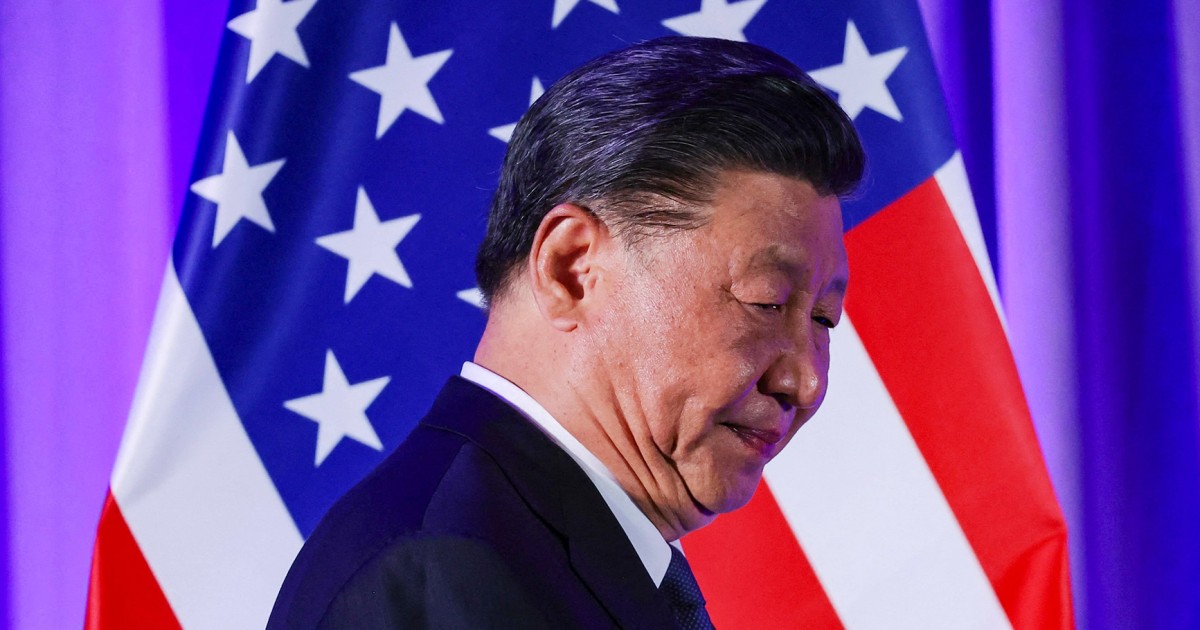“U.S.-China ties will still be challenged during a Harris presidency but could be more stable than during the Trump and Biden years,” Wu said.
Harris has never been to China but she has made multiple trips to Asia as vice president, including to the Philippines, where she reiterated Washington’s commitment to defending its ally against Chinese aggression in the South China Sea.
Her only direct encounter with Xi came in 2022 on another one of those trips, when they briefly exchanged remarks at a summit of Asia-Pacific nations in Bangkok.
As a senator, Harris co-sponsored the Uyghur Human Rights Policy Act, which condemned Beijing’s alleged rights abuses in the Chinese region of Xinjiang, and the Hong Kong Human Rights and Democracy Act, which supports democracy in the Chinese territory. (Trump signed both.)
“The vice president is clear-eyed about the threats posed by China, and as president, she will ensure the United States wins the competition for the 21st century,” a campaign spokesperson said.
It remains unclear who would advise on China policy in a Harris administration, whereas Trump would most likely turn to some of the same people who influenced China policy in his first term, such as Robert O’Brien, who served as his national security adviser, and Mike Pompeo, former CIA director and secretary of state.
The Trump campaign did not respond to a request for comment.
On China’s heavily censored social media, Trump supporters are dominant.
Some are less concerned with Trump’s China policies but admire his authoritarian tendencies and “anti-woke” rhetoric, said Kaiser Kuo, the host and co-founder of the Sinica Podcast.
Others think Trump is likely to undermine U.S. alliances, irritate multiple countries by imposing tariffs and generally “lower America’s standing in the world, which is good for China,” he said.
One commonly used translation of Trump’s name in Chinese is Chuan Jianguo, or “Trump Builds the Nation” — the nation being China.
But it’s a mistake for either country to think of U.S.-China relations as a zero-sum game, Jia said. “What’s bad for the U.S. is not necessarily good for China,” he added.
Walz’s China record
Of the four people on the Republican and Democratic tickets, the one with the most China experience is Harris’ running mate, Minnesota Gov. Tim Walz. He spent a year teaching English in China after graduating from college, and later set up a company with his wife that took groups of high school students to China every summer for years.
Walz wanted to go to China “to have a look using his own eyes to see what this country is about before making any judgments,” said Christy Day, a student from Walz’s China days who now lives in Perth, Australia.
Walz, who has long been a vocal critic of China’s human rights record, said the point of his travel there was to help young Americans learn more about China and young Chinese learn more about democracy.
“I do understand China a hell of a lot better than Donald Trump,” he told reporters in Harrisburg, Pennsylvania, this month, noting the praise Trump has showered on his “very good friend” Xi.
In his recent memoir, Trump’s former national security adviser, H.R. McMaster, described telling John Kelly, the president’s chief of staff at the time, that Trump had walked into Xi’s “trap” when discussing Taiwan and U.S. military exercises with South Korea, while ignoring talking points McMaster had laid out for him ahead of their 2017 meeting in Beijing. (A Trump campaign spokesperson said McMaster’s memoir was “riddled with untrue stories.”)
“Xi Jinping is not someone you should look up to,” Walz said. “Xi Jinping is not someone who you should say does a good job on things, as Donald Trump has said about Covid.”

